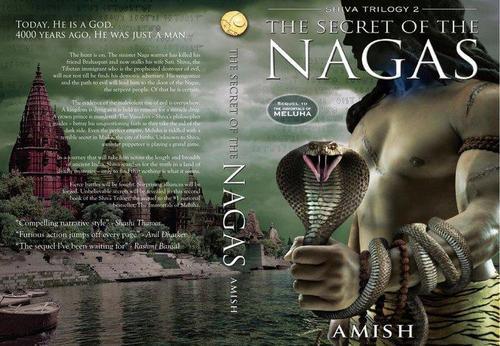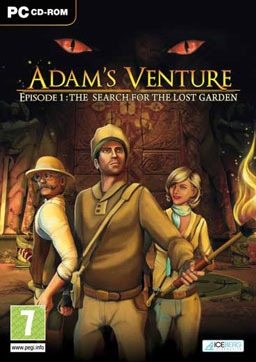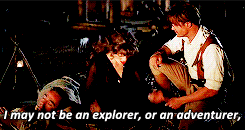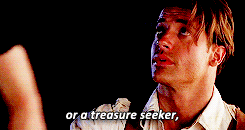C.K. Burch's Blog, page 275
June 30, 2014
June 28, 2014
touchmebuttons:
Rise of the Tomb Raider
OOOOH
June 27, 2014
We all need to remember that this happened.
We all need to remember that this happened.
jackscoresby:
I’ll be selling 8x10 prints of photos I took of...

I’ll be selling 8x10 prints of photos I took of my amazing friend Katie West until July 7th. This photo and 24 others from our adventures in Oklahoma are available here for $40 per photo.
Enter the promo code OKLAHOMA to save 10% on your entire order!
People, get on this.
Have you read Dust McAlan and the Empire of the Serpent? Come...

Have you read Dust McAlan and the Empire of the Serpent? Come leave a review! Every review counts and helps, and is always appreciated!
June 26, 2014
poc-creators:
"Amish: Humility of a Witness"
‘‘My books began...




"Amish: Humility of a Witness"
‘‘My books began as a pure philosophical thesis, nine or ten years ago. My family and I were watching a TV program. We discovered something very interesting. In the ancient Indian pantheon, which exists today as well, Indian gods are called devas and demons are called asuras. What we discovered in this TV program was that in the ancient versions of the religion, the gods were called asuras and demons were called devas. The exact opposite! Which started a very interesting debate in our family. If the ancient versions and the modern versions met, they’d probably call each other evil, because my god is your demon, and your god is my demon, so they must be evil. Who’d be right? The obvious answer is neither – they’re just two different ways of life. If neither of them is evil, what is evil? Is evil something bigger? Is evil something beyond this?”
…
‘‘For me, it’s a mix of fiction and history. Some of the historical interpretations aren’t the official ones, like the Aryan invasion theory, which in India, at least, the official historians still believe. The theory is that the Vedic people were descendants of central Asians who conquered India three and a half thousand years ago and forced the original inhabitants to move down south. These central Asian leaders became the Vedic Aryans. Many Western historians have started junking the Aryan invasion theory. They say there isn’t enough evidence to back that idea. Migrations happen all the time, but the Vedic civilization was an indigenous culture…
*
‘‘My book was rejected by every publisher I sent it to. One publisher explained in very clear terms why the book had no hope. He said that it’s on a religious topic, and the youth are not interested in religion, so I’d alienated that market segment. They don’t want someone talking down to them. (I don’t think it’s a religious book, I think it’s an adventure book. It just happens to be based on Shiva, a religious figure.) The assumption was that young readers wouldn’t be interested, because religious books weren’t selling at that time in India. The second thing was that I have a different take on religion, not in line with the official version, which means the older religious people wouldn’t be interested. The third thing is that I insisted on writing in modern Indian English, which means the literary elite in India wouldn’t be interested. They like British-style writers, they’re still stuck in that era, and they don’t want modern prose. Basically I’d alienated every single reader segment. I told him, ‘I didn’t do market research, I just wrote the book.’
‘‘So I’m self-published.
…
*
I don’t use my surname, Tripathi, on the cover of my books. It’s a caste surname, and I’m against the caste system. I have to use it for legal purposes, obviously, but on my books I don’t use it. The way the caste system exists today is not the way it was originally supposed to be. Today it’s based on birth, which is wrong. Originally it was a hierarchy based on karma, on merit.”MORE…”
“I am only witness to Shiva’s magic”
Amish Tripathi on his dream run as the author of the mythological trilogy and why he doesn’t want to wake up
From being a pen-pusher in the corporate sector, Amish Tripathi has indeed come a long way, taking the literary world by storm with his first book. As his Shiva trilogy finally comes to a much-awaited end, the author speaks to us about his journey, how Shiva might soon make a splash in a Hollywood flick, and why he needs to move on after Meluha. Excerpts:…
From the first book, till now, how have you evolved as an author?
Now that I am a full-time writer, I find that I can read as much as I like, visit new places, do extensive research, meet interesting people. I am not constrained by time and I think that reflects in my writing now. Perhaps this is the reason why my third book is 600 pages long! More importantly, I have evolved as a human being. I understand how lucky I am in terms of the family, friends and partners who surround me. Also, in the process of writing my books, I have rediscovered faith and spirituality. I am happy. Isn’t that what truly matters?…
Be it the book cover or marketing strategy, Meluha has been a first in many ways. What can we expect now?
Having been rejected by every publisher, one of the happy by-products of my first book, Meluha, was when I finally selfpublished it along with my agent (Anuj Bahri). Then I had complete control over marketing. There was nobody from the publishing industry telling me that ‘this is the way it has always been done in publishing’, which meant that we could try new and innovative marketing ideas. Due to my background (one of the departments I managed in my last job was Marketing), I had access to some really smart marketing people, none of whom were related to the publishing industry at that time. These people gave me some great advice and I, in turn, was smart enough to listen to them! In terms of the marketing strategy for the third book, The Oath of the Vayuputras, you’re going to have to wait and see. But we have some pretty good ideas up our sleeves! The cover of the book has already been launched. I hope you like it.
This looks beautiful and intriguing. Now I want to pick it up.
Mythology just gets to me, man.
June 24, 2014
THE PROPHECY
HEY YOU!
Back up your files! Do it now! This is LATER, when you intended to back everything up.
The prophets have spoken: You will lose the access to that account where you are keeping all those things, you will forget your password, your hard drive will spontaneously explode, your laptop will…
Don’t argue with prophecy. Remember to back up your files.
June 22, 2014
littlepaperhugs:
Your rest is important. Your nourishment is important. Your needs are...
Your rest is important. Your nourishment is important. Your needs are important.
Your life is important.
You are important.
June 21, 2014
Let’s talk about Adam’s Venture.
This is an episodic...

Let’s talk about Adam’s Venture.
This is an episodic adventure game that, by its own description, focuses on family-friendly puzzles, and non violent action. Okay, I says to myself, I can handle that. I know plenty of games that don’t rely on action to sell themselves. Also, I can handle some puzzles. Usually. I’m more of an action puzzle adventure gamer, but I can figure these things out. Also, I can tell from the get-go that it’s a Christian game, and again, I’m like, okay, I can handle that. I grew up with Christian video games, I know what I’m in for.
I didn’t know what I was in for.
The biggest problem with Adam’s Venture, outside of the rampant puzzles for everything, is the lack of any reason for anyone who isn’t Christian to play this game. And at first, I was really forgiving of that aspect. But when it came down to it, the game had bad writing, awful pacing, terrible story, and Biblical overtones really set it apart as a game where there was clearly good intent, but it falls flat on its own face.
Let’s talk about the good: the graphics, for a $4.99 per episode game, are decent enough. The environments were nice, the animations were okay, and it was pretty enough to look at that it distracted me for a while. Honestly, I wasn’t expecting it to look that good, but for a bargain game, this is gorgeous compared to some. The game controls well enough, the interface is easy to get used to, and the music is perfectly decent. All well enough for making the gameplay experience enough for me to keep going despite everything else. And that’s the bad: everything else.
Over the course of the three episodes, the game’s story goes all over the place. It begins with the climax (“The Search For The Lost Garden” should really be titled “The Search THROUGH The Lost Garden”) as Adam Venture and company arrive at the Garden of Eden, searching for a way inside, but are denied by a strange smoke monster, and then the cavern collapses. That’s Episode I. Episode II picks up immediately after, where we discover that the corporation Adam was funded by is really actually evil and is mining beneath the Temple Mount for Solomon’s Treasure, which Adam and Evelyn (last name Appleby) search for first, only to have a cliffhanger ending where it looks like Adam is trapped beneath the collapsing Temple (sensing a trend?). Finally, Episode III opens up before Episode I’s opening, showing us how Adam and Evelyn got to where they were in Episode I, and introduces Adam’s father, who we have yet to meet, yet somehow manages to reach Solomon’s Temple just in time for Adam to wake up and save the day. It’s a strange narrative decision that completely undermines any kind of tension or suspense, and refuses to give the player any reason to care about Adam, or Evelyn, or Adam’s father. Adam’s father doesn’t even show up until the end, so we had no idea he was a part of the story whatsoever, and is really only there to provide a mentor figure who is taken hostage by the evil bad guys. And the evil bad guys are really evil: they apparently had no idea what they were doing at Eden, as the story tells us that their intent was to blow up the Temple Mount to get Jews and Muslims and Christians to go to war with each other and sell everyone weapons. Eden, it seems, exists only to exist in the first episode, and is promptly forgotten about.
But while the story goes nowhere and leaves sense at the door, the puzzles are where the game truly lets the player down. At first, the math puzzles are easy to overcome, but the logic puzzles go from making sense to making no sense, to not even understanding what sense is. I spent more than a couple of puzzles randomly pressing buttons until something happened, and I didn’t even know how I’d solved half of the objectives. But then the Bible puzzles come up. By including puzzles involving specific Bible verses that have to do with specific instances that could not have been written in the Bible at that time, it bounces out any suspension of disbelief, and the true nature of the game is shown: this is a Christian adventure game for Christians. And that’s fine, I suppose, but it felt incredibly disappointing to me. Eden shouldn’t have signs written in English describing Hope, Faith, and Love, nor should it have revolving posts with verses about Jesus Christ. If the Garden had been locked up by the Almighty, I sincerely doubt he would have required an understanding of the Messiah to do so, especially considering that English wasn’t a language to be written at that time, nor was Jesus a glimmer in Mary’s eye. What further infuriated me was the notion that Solomon’s Tomb was accessible via puzzles that referenced Bible verses ABOUT Solomon. This implies that Solomon was vain enough to write about himself and use his own verses to unlock portions of his own temple/tomb in order to access the treasure that he had amassed over his lifetime, including his time worshipping false gods. Either that, or someone went into Solomon’s Temple long after the fact, and set up these puzzles using said Bible verses and then relocked everything so someone could find the treasures centuries later. I understand that this is “a video game,” but there is such a thing as setting the scene, and making the player feel like this is a real thing. Games such as Uncharted and Tomb Raider come up with puzzles that feel like they really could unlock these ancient places, and feel natural. Adam’s Venture forgoes feeling real in order to place Bible verses and history into the game, where unfortunately it really does not make sense. What’s further aggravating is that I grew up in a Christian household as a video gamer, and so time and time again I beheld Christian games that did little more than fanservice the Bible, and made little sense as actual games. Games are meant to be fun, and can be educational as well when done correctly. Simply tossing in puzzles that require Bible knowledge don’t, in fact, make a game any more valid for a Christian gamer; they simply make them more obviously Christian in objective.
Part of me wants to write a story in which a Bible scholar uses his knowledge of both history and the Bible to track down an artifact, without insulting either the Christian or the mass media audiences. It can be done. The problem is that most Christian game designers — whether it is Adam’s Venture or otherwise — seem to think that the purpose of these games is to educate and elucidate around the Bible itself, and so sacrifice any believability in their game to work the mechanics around Bible teaching, instead of working the teaching in. This is the biggest obstacle for Adam’s Venture, in that ultimately it excludes itself from the rest of adventure gaming and squarely sets itself into a limited category that limits the expectations of players. As someone who has read and understands the Bible, the fact that these puzzles did little more than highlight verses just stood out as lazy game design. Make them feel natural or a part of the world, or don’t make them. Your audience will see this and realize what you’re doing. This isn’t Math Blaster. This is an adventure game for adventure gamers.
I actually really wanted to like this game, and went in with the expectations of something that wore its religious lean on its sleeve (literally: Adam has a WWJD patch on his shoulder in the year 1928). However, as the game progressed, I found myself more and more disappointed in that the producers did not seem to want to make a game so much as they wanted to make a series of brainteasers and Bible verse tests. The adventure part of the adventure was lacking, the story held no weight, and overall, the game was a thorough disappointment. At the very end of the third episode, Adam says, “This isn’t the end, this is just the preface.” Adam, you’d have to understand where to place the preface before understanding where the ending is, and furthermore, you’d have to understand how to tell a story. As it stands, this truly isn’t worth the purchase at all.













